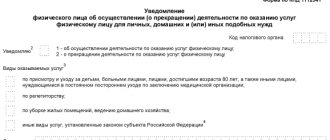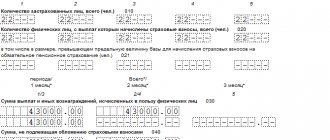Where to look for what is not subject to insurance premiums
In 2020, to understand what income is not subject to insurance premiums, you need to refer to Article 422 of the Tax Code. This article contains a closed list of positions. And this is important. Let us explain why. If you suddenly wonder what accruals are not subject to insurance contributions and in Art. 422 of the Tax Code of the Russian Federation did not find any mention of the corresponding amounts from your case, which means that contributions will still have to be calculated on them. Please note that tax authorities extremely do not like broad interpretations of closed lists by the persons they check in their favor. So, be prepared to defend your position if you think that in your case the amounts are not subject to insurance premiums.
Let’s say right away that there have been no global changes regarding payments that are not subject to insurance premiums. Their composition is quite uniform across different companies and individual entrepreneurs, so they almost mirrored the transition from the Law on Insurance Contributions No. 212-FZ to the new Chapter 34 “Insurance Premiums” of the Tax Code of the Russian Federation.
Also see “New chapter on insurance contributions to the Tax Code of the Russian Federation from 2020.”
Payer of tax contributions
In accordance with Art. 226 of the Tax Code of the Russian Federation, the obligation to accrue and pay tax amounts to the budget lies with certain taxpayers. These include:
- companies registered in the Russian Federation;
- private entrepreneurs who must pay tax for themselves and their employees;
- notaries in private practice;
- lawyers engaged in private consulting or who have opened law offices;
- separate divisions of organizations located on the territory of Russia, while their head offices have foreign registration.
We invite you to read: Fraud in OSAGO in 2020: judicial practice of scams
https://youtu.be/gXAUMelo9as
A complete list of what is not subject to insurance premiums
For convenience, we will show which payments are not subject to insurance premiums in 2020, in the form of a table.
| Type of payment | Explanation |
| State federal, regional and local benefits | This includes unemployment benefits and other amounts required under compulsory social insurance. |
| All types of compensation from the state (within standards) | They may be associated with: • harm from damage to health; • free provision of housing, payment for housing and communal services, food, fuel or their cash equivalent; • issuing products or money in exchange; • payment for some sports nutrition and other attributes for professional sports; • dismissal (exception: a) compensation for unclaimed leave; b) severance pay and average monthly salary over 3 times the amount (six times in the northern territories); c) compensation to the manager, his deputies and the chief accountant in excess of three times the average monthly salary); • training, retraining and advanced training of personnel; • costs of the contractor under a civil agreement; • employment of those laid off due to layoffs, in connection with the reorganization or closure of an organization, individual entrepreneur, notary, lawyer, etc. • performance of labor duties, including moving to another place (exception: money for negative labor factors), compensation for dairy products , for unclaimed leave (when not related to dismissal). |
| Disposable mat. help | • people due to natural disasters or other emergencies for compensation for material damage or harm to their health, as well as victims of terrorist attacks in the Russian Federation; • an employee whose family member has died; • employees at the birth (adoption) of a child (including guardianship) in the first year. Limit: up to 50 tr. for each child. |
| Income of indigenous peoples from their traditional trade | Exception: wages |
| Amounts of insurance contributions | Includes: • contributions for compulsory personnel insurance; • contributions under contracts of voluntary personal insurance of employees with a period of 1 year for medical payments. expenses; • contributions under medical contracts. services to employees for a period of 1 year with licensed honey. organizations; • contributions under voluntary personal insurance contracts in the event of one's death/or harm to health; • pension contributions under non-state pension agreements. |
| Additional employer contributions to funded pension | Up to 12 tr. per year per employee |
| The cost of travel for workers from the northern territories to the place of vacation and back and baggage allowance up to 30 kg kilograms | If you are on vacation abroad, then the cost of travel or flights (incl. luggage up to 30 kg) is not taxed. |
| Payments from election commissions, referendum commissions, from election funds | To positions elected in the Russian Federation: from the President of the Russian Federation to the local level |
| Cost of uniforms and uniforms | Issued by force of law, as well as to civil servants. Free or with partial payment. Remains for personal use. |
| Cost of travel benefits | Provided by law to certain categories of workers |
| Mat. assistance to employees | Up to 4000 rub. per person per billing period |
| Payment for employee training | For basic and additional professional educational programs |
| Amounts to employees to pay interest on loans and credits | This means that the loan was taken for the purchase and/or construction of housing |
| Cash allowance, provision of food and things | Applies to the military, police department, fire service, heads of federal courier communications, employees of the penal system, customs authorities |
| Payments and other remuneration under labor and civil law contracts (including author’s orders) in favor of foreigners, stateless persons temporarily staying in the Russian Federation | Exception: when such persons are recognized as insured under Russian law |
Who is entitled to two-week severance pay upon dismissal - formulas, calculation, example
Typically, upon dismissal, the employer pays the employee's due salary and compensation for unused vacation time.
But under certain circumstances established by labor law, an additional two weeks of benefits are paid.
In the current material, we will figure out who is entitled to receive it and how to correctly calculate the amount of the payment.
The article describes typical situations. To solve your problem , write to our consultant or call for free:
+7 – Moscow – CALL
+7 – St. Petersburg – CALL
+8 ext.849 – Other regions – CALL
It's fast and free!
Who should?
Two-week severance pay upon dismissal is due under the following circumstances:
- dismissal due to inadequacy of the position for health reasons, if there is medical conclusion;
- conscription;
- the employer moves to another location, the employee does not want to be transferred;
- changing working conditions that do not suit the employee.
- the onset of complete disability.
In all of the above cases, upon dismissal, the employer must pay the person severance pay in the amount of two weeks’ average earnings.
The benefit is subject to mandatory payment on the immediate day of dismissal, together with other required amounts.
By an employment contract and other local acts of the organization, the employer has the right to provide for other cases of payment of severance pay.
He also has the right to approve a higher amount than two weeks. This condition must also be documented in individual or collective employment agreements.
Is it paid for health reasons?
According to Art. 178 of the Labor Code of the Russian Federation, a person may well receive severance pay upon dismissal for health reasons.
It is paid if an employee refuses to be transferred to another place on the basis of a medical report.
Also, such a payment will be received by a person who, for medical reasons, can no longer work in the same place, and the employer cannot offer him another job.
Suppose a person works in a mine and he begins to have serious problems with his lungs, there is a report from a doctor.
In such circumstances, the only option is to resign for health reasons with two weeks' severance pay.
The employee may himself express a desire to leave the company by agreement of the parties, while asking for a larger amount of compensation.
Disability payment
There are two options for the development of events towards dismissal due to an employee’s disability:
- An employee has the right to write a letter of resignation by agreement of the parties.
- The employer initiates the dismissal of an employee due to inadequacy for the position held.
When choosing the second option, the employer is obligated to pay the employee severance pay in the amount of two weeks' average earnings.
In the first case, the employee can also ask for a compensation amount. The ceiling for such payments is established by law only for management positions.
When dismissing a person due to disability, it is important to pay attention to her group. The third group can be fixed.
Therefore, the employer can temporarily transfer the employee to an easier position, and then, after restoration, return him to his previous place.
If there is no suitable position for a person with a disability, or he refuses the transfer, he is fired with severance pay.
It is recommended that the transfer proposal be made in writing and sent to the employee in the form of a notice.
Based on the above, if a person becomes disabled, he can be fired with payment of two weeks’ average earnings, since he does not correspond to the position he occupies, and he cannot continue working due to a medical report.
How to calculate - rules and formulas
You can calculate severance pay using special formulas:
Formula for calculating compensation:
K – amount of compensation;
SrZ – average earnings for the year;
Bd – the number of working days of the paid period (in this case, the number of working days in two weeks).
Formula for calculating average earnings:
SrZ = Zrp / Chod, where
Zrp – income for the billing period (year);
Chod is the number of days actually worked.
When calculating compensation, you need to take into account important points:
- Payments must be made exclusively for working days; holidays and weekends are not subject to payment.
- When calculating average earnings, only income as wages is taken into account (various compensations, financial assistance, vacation pay, benefits, etc. are not taken into account).
- The wage system does not affect the amount of benefits;
- If a person quits on the last day of the month, that month is included in the calculation of average earnings.
- Severance pay is not subject to income tax.
By adhering to the above rules and formulas, a person can easily calculate the amount of his benefit or check with an accountant.
Just to check, you will have to study your pay slips for the year in detail. In accruals, it is necessary to highlight only payment for labor: salary, bonus, night hours, etc.
Calculation examples
Let's look at specific examples of how to correctly calculate two-week severance pay.
Let’s assume that an employee’s earnings for the year amounted to 216 thousand rubles, there were 180 working days during this period. He quits on September 30.
It turns out that for the period from October 1 to October 14, he should receive benefits for 10 working days (five working days a week).
- СрЗ = 216000 / 180 = 1200 rub.
- K = 1200 * 10 = 12000 rub.
The person will receive the specified amount in hand, since it is not subject to income tax.
Let's say a person quits on December 31st. His average daily earnings, based on his salary for the year, amounted to one thousand rubles. The employer needs to pay benefits for the period from January 1 to January 14.
A five-day workday results in only four working days.
Therefore, the payment must be calculated as follows: 1000 * 4 = 4,000 rubles.
From the examples provided, the main point can be highlighted: severance pay is accrued only for those days that would have been working days within two weeks after dismissal.
Useful video
The amount of severance pay is described in detail in this video:
conclusions
Let us highlight the main points on the topic studied:
- A two-week severance pay is paid upon dismissal for reasons: inadequacy of the position due to health reasons, complete disability, relocation of the employer, conscription into the army, change in working conditions.
- Payments in a larger amount are permitted if this is stipulated by the company’s local documents and employment contracts.
- The biweekly payment is calculated based on the average daily earnings for the year. Only days actually worked and income as remuneration are taken into account. Compensations and other payments are not taken to calculate average earnings.
- Only working days of the pay period are included. The compensation is equal to the average daily earnings multiplied by the number of working days.
- The payment is not subject to income tax. The remaining amounts due upon dismissal are subject to income tax in the usual manner - thirteen percent.
- Two weeks' severance pay is paid on the day of dismissal along with other due payments.
The article describes typical situations. To solve your problem , write to our consultant or call for free:
+7 – Moscow – CALL
+7 – St. Petersburg – CALL
+8 ext.849 – Other regions – CALL
Payments for business trips
Let's focus on excess daily allowances. These amounts remained the same in 2020: from 700 rubles. within Russia and from 2.5 thousand for foreign trips. But in 2020, contributions will have to be calculated for exceeding these values.
This income tax rule also applies to large daily allowance contributions. Therefore, one can only say with a stretch about daily allowances that this is income not subject to insurance premiums.
For more information about this, see “How per diem is assessed in insurance premiums from 2020.”
Here’s something else that is not subject to insurance premiums and is directly related to business trips. These are the costs for:
- the path to the destination and back;
- airport taxes;
- commissions;
- way to the airport, train station (including transfers);
- baggage transportation;
- rental housing;
- mobile communications;
- fee for obtaining a foreign passport;
- visa fees;
- commission for currency exchange (check at the bank).
Similar rules on payments that are not subject to insurance premiums apply to members of the company's senior management bodies. When they come to a meeting of the board of directors, board, etc.
Employers' liability
Legislation obliges owners not only to promptly pay their subordinates at the time of termination of employment, but also to properly withhold contributions from compensation for unused vacation upon dismissal. In 2020, the following administrative liability is provided for violation of the Labor Code:
- a fine of 10-20 thousand rubles is imposed on officials;
- from 30 to 50 thousand are paid by legal entities.
The actions of a manager who refuses to pay compensation for missed vacation for several previous years are illegal. Some motivate this by the fact that the right to receive the cash equivalent can no longer be realized. In this case, the employee can contact the labor inspectorate or the prosecutor's office with a complaint, on the basis of which an inspection will be initiated.
Compliance with labor laws is a mandatory aspect of the relationship between the employer and subordinates. The manager must make all required payments, and the employee must reimburse the statutory deductions from wages.
https://youtu.be/EdKgyxMWq3Q
More income not subject to insurance premiums
Some amounts that are not subject to insurance premiums are somewhat different from all of the above. They are obviously not included in the contribution base (see table below).
| What are the fees? | What amounts |
| Contributions to OPS | Payments to: • prosecutors, investigators, federal and magistrate judges; • full-time students for activities in official student groups under labor or civil law agreements. |
| Contributions for illness and maternity | Any payments under the GPA: copyright, on the alienation of exclusive rights, publishing, licensing on the right to use a work of science, literature, art |
Including information in the RSV
The calculation of insurance premiums is a report submitted to the Pension Fund of the Russian Federation. It contains all the principles for filling out reports that were previously submitted to extra-budgetary funds.
We invite you to familiarize yourself with: What amounts are not subject to insurance premiums?
The RSV maintains an annual billing period. Over the course of one year, data on accrued and paid contributions are entered quarterly into the interim report in increasing amounts. But at the same time, it also contains more detailed information relating to the latest quarter at the time of submission of the report.
In Section 3 of the DAM, data on all payments to an individual and the amount of accrued contributions for compulsory pension insurance for the past period are indicated only in a cumulative form. For this reason, you can see the monthly reflection of information only in the last quarter.
Since in the DAM data should be shown throughout the billing period in increasing amounts, dismissed employees will always be included in the calculation of insurance premiums. Information about them goes to:
- In subsection 1.1 of Appendix 1, relating to section 1. It is contained in the amounts that are entered in the column “Total from the beginning of the billing period.”
- In section 3 “Personal data of employees”.
But due to the fact that accruals for citizens who completed their working career in the organization before the start of the last reporting period are already being made, there is no need to fill out subsection 3.2. Thus, from the information about the dismissed, reflected in section 3, there is only data that allows the identification of this citizen.
The most common payments: explanation
Civil contracts
In 2020, insurance premiums are not imposed on payments under civil contracts, for the purchase of property or property rights. As, indeed, under lease, loan, leasing, donation and other agreements, under which property and property rights are transferred for temporary use. An exception is contracts for construction, paid services, as well as copyright agreements. Payments under these agreements are subject to contributions. This follows from paragraph 4 of Article 420 of the Tax Code.
Prizes, pensions and scholarships
There is no need to charge insurance premiums when issuing prizes to customers, supplementing pensions to former employees, or paying scholarships under student contracts (including to full-time employees).
Material benefit
There is no need to pay insurance premiums for the material benefit that the employee receives due to savings on interest when receiving an interest-free loan from the employer.










